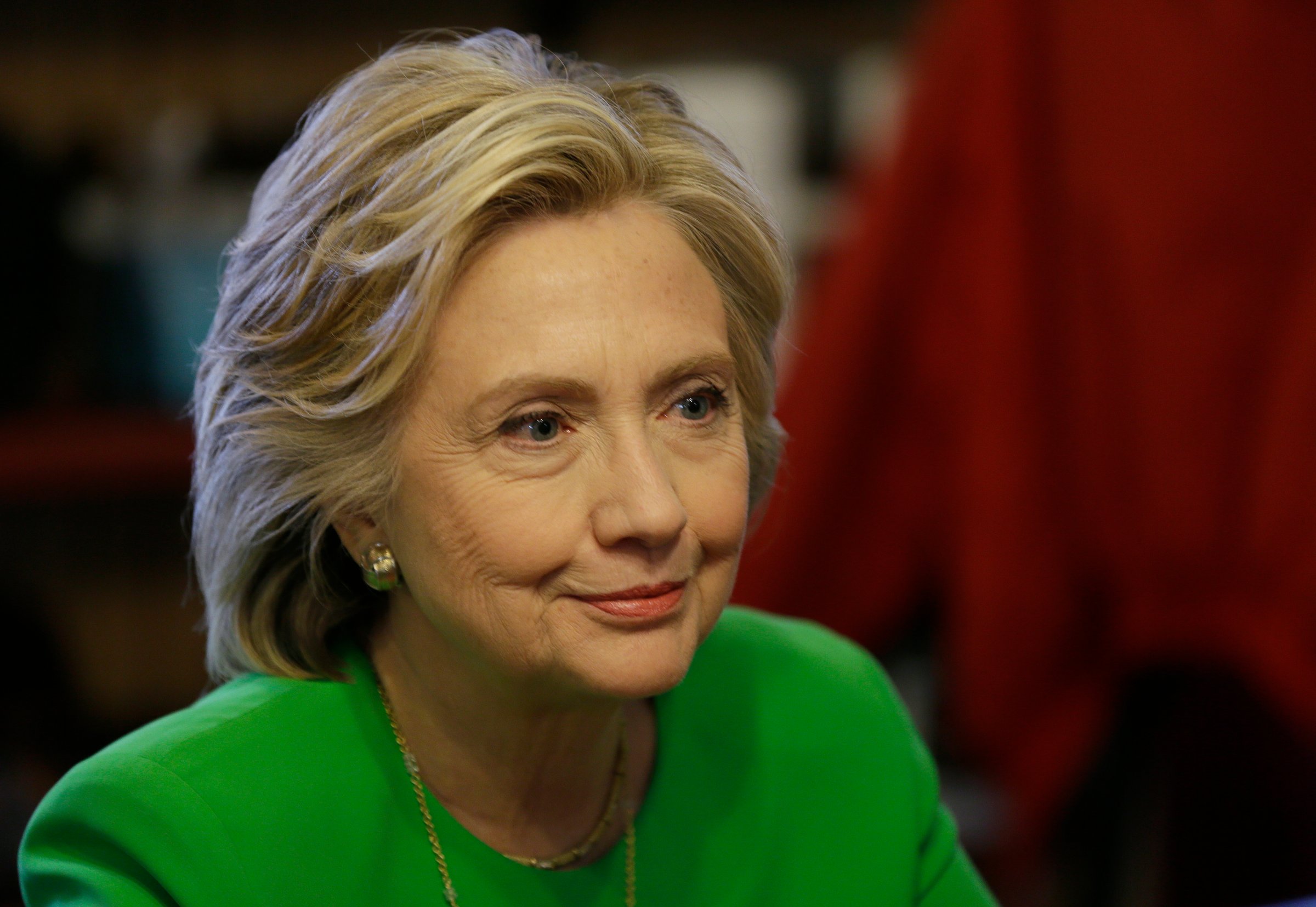
It’s possibly no coincidence that Hillary Clinton started her presidential run the same week that astronomical scientists at the University of Hawaii in Manoa announced the discovery of a Supervoid, a structure in space 18 billion light-years across and “distinguished by its unusual emptiness.” The Supervoid sits in a part of the cosmos known as the Cold Spot, where there’s far less matter to observe than elsewhere throughout the universe.
It’s a perfect analogy for how Hillary Clinton’s opponents seek to characterize her: as someone who is profoundly visible yet hard to identify. She is politics’ Dark Matter: We know she’s there, but we just can’t describe her. Is she on the left or the right, is she a friend of the rich or the poor, is she a testosterone-fueled superhawk or a grandmatronly van-driver popping into Chipotle for a chat with the staff?
Yet Hillary’s identity problem is prominent only because she has been on the public stage for so long. It’s a magnified version of a debilitating crisis of identity that sits at the heart of national American politics, the real Supervoid that constricts and confines most presidential candidates: and that is, the intense pressure to say nothing. Knowing that your every speech and interview sits in the digital archive, ready to be analyzed by an army of opponents with time to spare and money to spend, can kill spontaneity dead. Far better to sit contentious debates out. If you hold public office, be careful how you vote on any piece of legislation, no matter how obscure. Your voting record will be used by your opponents just as savagely as if it were a criminal one.
And far better to stand for president before you’ve done anything. It worked for Obama, who moved swiftly in the space of two years from senator to president and kept out of trouble as much as he could while still in the Senate chamber. It’s the same be-a-senator-for-a-few-years-then-jump strategy now being used by Marco Rubio. When you’ve not got much to show for yourself other than your face, you enter the presidential race without baggage and with the opportunity to attack all those who have. You enter not as someone with a legacy but someone who is a brand. The difference with Hillary is that she’s been around a lot longer, so she has had more time in which to try not doing very much. That’s a tougher challenge, and the fact she’s more or less managed it shows what a formidable candidate she’s going to be.
When I first started researching Veep, my comedy show for HBO with Julia Louis-Dreyfus playing Vice President Selina Meyer, I was much taken by the portrayal of LBJ in Robert Caro’s monumental biography of the president. What hooked me was the tragicomic dilemma of a once-powerful senator found sitting in his vice president’s office twiddling his thumbs and waiting for something to do. Looking at it again, I’m reminded of a state of politics now gone: When Johnson was majority leader, he got things done. Here was a Democrat, working alongside a Republican White House under Eisenhower and getting legislation passed by extending a hand across the aisle. He sometimes twisted the arm that was extended back; the negotiations certainly weren’t pretty, but they did achieve positive results. This was a time when the two parties in Congress talked to each other and found common ground. It’s worth remembering the Constitution is predicated on people at opposite ends of the political spectrum being forced to compromise.
Now, though, that doesn’t happen. The conversation is stalled, the vote delayed, the bill dropped. Which is why candidates running now define themselves by their inaction: “Vote for me because I voted against this, I stopped it from happening, I got this overturned, I will oppose this measure, I’ll make sure this is thrown out.”
This is the ultimate Supervoid now at the heart of politics. It’s the reason why for most presidential candidates today, the only significant thing they can say about themselves is that they are running for president.
Iannucci is the creator and executive producer of HBO’s ‘Veep.’
This article originally appeared on The Hollywood Reporter.
More from The Hollywood Reporter:
More Must-Reads From TIME
- The 100 Most Influential People of 2024
- The Revolution of Yulia Navalnaya
- 6 Compliments That Land Every Time
- What's the Deal With the Bitcoin Halving?
- If You're Dating Right Now , You're Brave: Column
- The AI That Could Heal a Divided Internet
- Fallout Is a Brilliant Model for the Future of Video Game Adaptations
- Want Weekly Recs on What to Watch, Read, and More? Sign Up for Worth Your Time
Contact us at letters@time.com